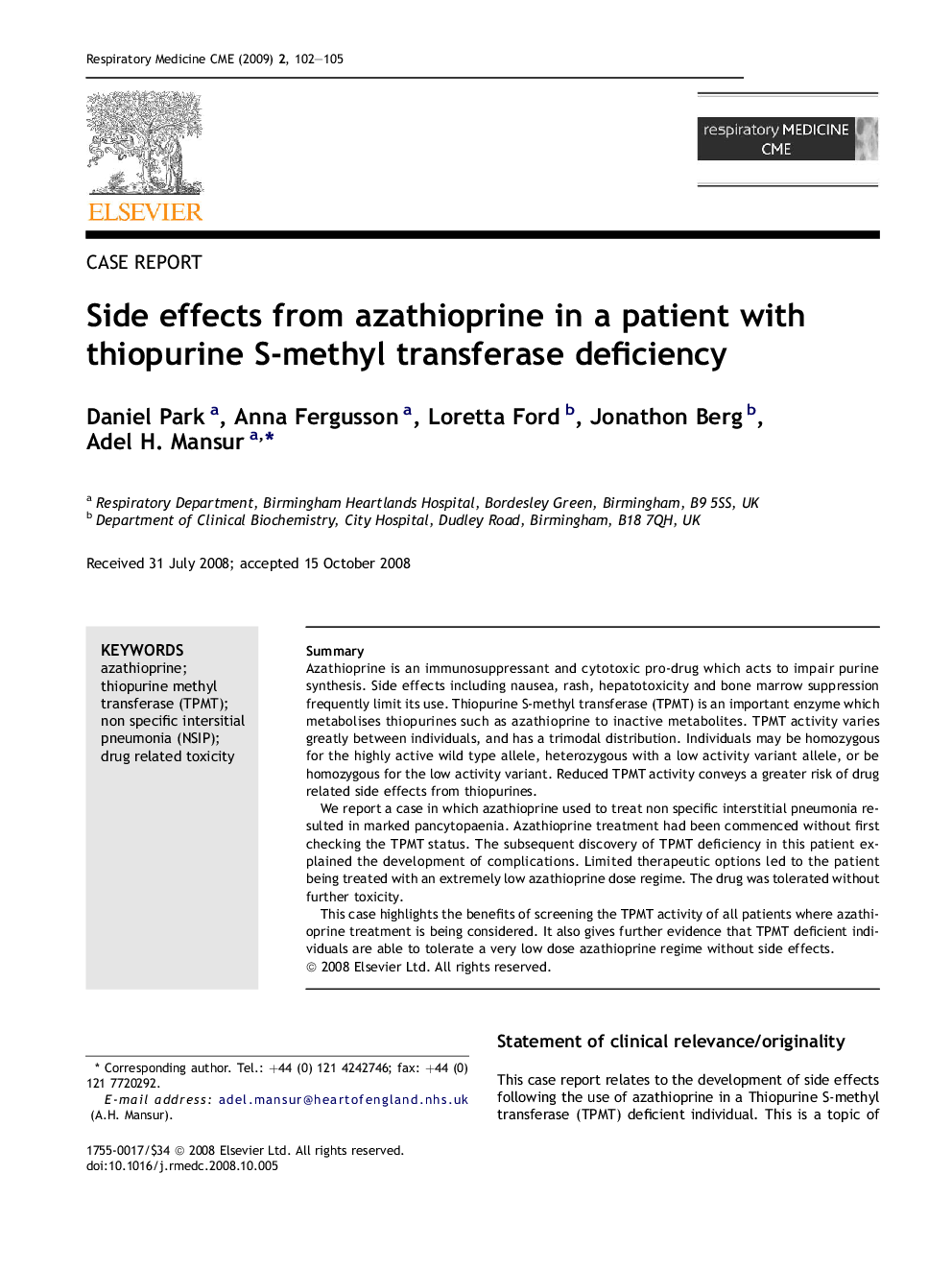| Article ID | Journal | Published Year | Pages | File Type |
|---|---|---|---|---|
| 4213110 | Respiratory Medicine CME | 2009 | 4 Pages |
SummaryAzathioprine is an immunosuppressant and cytotoxic pro-drug which acts to impair purine synthesis. Side effects including nausea, rash, hepatotoxicity and bone marrow suppression frequently limit its use. Thiopurine S-methyl transferase (TPMT) is an important enzyme which metabolises thiopurines such as azathioprine to inactive metabolites. TPMT activity varies greatly between individuals, and has a trimodal distribution. Individuals may be homozygous for the highly active wild type allele, heterozygous with a low activity variant allele, or be homozygous for the low activity variant. Reduced TPMT activity conveys a greater risk of drug related side effects from thiopurines.We report a case in which azathioprine used to treat non specific interstitial pneumonia resulted in marked pancytopaenia. Azathioprine treatment had been commenced without first checking the TPMT status. The subsequent discovery of TPMT deficiency in this patient explained the development of complications. Limited therapeutic options led to the patient being treated with an extremely low azathioprine dose regime. The drug was tolerated without further toxicity.This case highlights the benefits of screening the TPMT activity of all patients where azathioprine treatment is being considered. It also gives further evidence that TPMT deficient individuals are able to tolerate a very low dose azathioprine regime without side effects.
